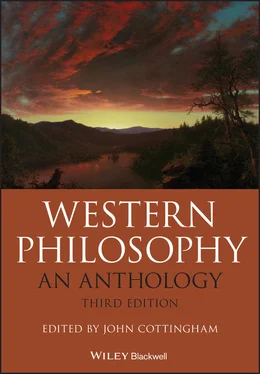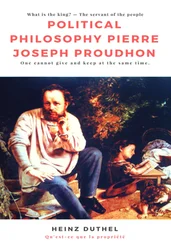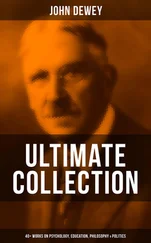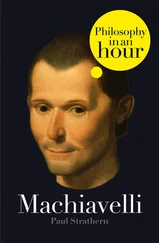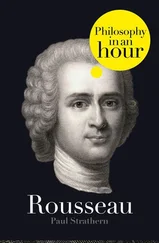For JCC and family
1 Cover
2 Series page
3 Title page
4 Copyright
5 Edition
6 Dedication
7 Preface
8 Acknowledgements
9 Guidance for Readers and Format of the Volume
10 Introductory Essay: How to Read a Philosophical Text and How to Write about It
11 Part I Knowledge and Certainty Chapter 1: Innate Knowledge Plato, Meno Chapter 2: Knowledge versus Opinion Plato, Republic Chapter 3: Demonstrative Knowledge and Its Starting points Aristotle, Posterior Analytics Chapter 4: New Foundations for Knowledge René Descartes, Meditations Chapter 5: The Senses as the Basis of Knowledge John Locke, Essay Concerning Human Understanding Chapter 6: Innate Knowledge Defended Gottfried Leibniz, New Essays on Human Understanding Chapter 7: Scepticism versus Human Nature David Hume, Enquiry Concerning Human Understanding Chapter 8: Experience and Understanding Immanuel Kant, Critique of Pure Reason Chapter 9: From Sense-certainty to Self-consciousness Georg Hegel, Phenomenology of Spirit Chapter 10: Beliefs Judged by Their Practical Effects William James, What Pragmatism Means Chapter 11: Against Scepticism G. E. Moore, A Defence of Common Sense Chapter 12: Does Empirical Knowledge Have a Foundation? Wilfrid Sellars, The Myth of the Given
12 Part II being and reality Chapter 1: The allegory of the cave plato, Republic Chapter 2: individual substance aristotle, Categories Chapter 3: supreme being and created things rené descartes, Principles of Philosophy Chapter 4: qualities and ideas john locke, Essay Concerning Human Understanding Chapter 5: substance, life and activity gottfried leibniz, New System Chapter 6: nothing outside the mind george berkeley, Principles of Human Knowledge Chapter 7: the limits of metaphysical speculation david hume, Enquiry Concerning Human Understanding Chapter 8: metaphysics, old and new immanuel kant, Prolegomena Chapter 9: reality as flux alfred whitehead, Process and Reality , and Science and the Modern World Chapter 10: being and involvement martin heidegger, Being and Time Chapter 11: the end of metaphysics? rudolf carnap, The Elimination of Metaphysics Chapter 12: the problem of ontology w. v. o. quine, On What There Is
13 Part III Language and Meaning Chapter 1: The Meanings of Words Plato, Cratylus Chapter 2: Language and Its Acquisition Augustine, Confessions Chapter 3: Thought, Language and Its Components William of Ockham, Writings on Logic Chapter 4: Language, Reason and Animal Utterance René Descartes, Discourse on the Method Chapter 5: Abstract General Ideas John Locke, Essay Concerning Human Understanding Chapter 6: Particular Ideas and General Meaning George Berkeley, Principles of Human Knowledge Chapter 7: Denotation versus Connotation John Stuart Mill, A System of Logic Chapter 8: Names and Their Meaning Gottlob Frege, Sense and Reference Chapter 9: Definite and Indefinite Descriptions Bertrand Russell, Introduction to Mathematical Philosophy Chapter 10: Meaning and Use Ludwig Wittgenstein, The Blue and Brown Books Chapter 11: Non-descriptive Uses of Language J. L. Austin, Performative Utterances Chapter 12: How the Reference of Terms is Fixed Saul Kripke, Naming and Necessity
14 Part IV Mind and Body Chapter 1: The Immortal Soul Plato, Phaedo Chapter 2: Soul and Body, Form and Matter Aristotle, De Anima Chapter 3: The Human Soul Thomas Aquinas, Summa Theologiae Chapter 4: The Non-material Mind or Soul and Its Relation to the Body René Descartes, Discourse and Meditations Chapter 5: The Identity of Mind and Body Benedict Spinoza, Ethics Chapter 6: Mind–Body Correlations Nicolas Malebranche, Dialogues on Metaphysics Chapter 7: Body and Mind as Manifestations of Will Arthur Schopenhauer, The World as Will and Idea Chapter 8: The Problem of Other Minds John Stuart Mill, An Examination of Sir William Hamilton’s Philosophy Chapter 9: The Hallmarks of Mental Phenomena Franz Brentano, Psychology from an Empirical Standpoint Chapter 10: The Myth of the ‘Ghost in the Machine’ Gilbert Ryle, The Concept of Mind Chapter 11: Mental States as Functional States Hilary Putnam, Psychological Predicates Chapter 12: The Subjective Dimension of Consciousness Thomas Nagel, What is it Like to be a Bat?
15 Part V The Self and Freedom (a) The Self Chapter 1: the self and consciousness John locke, Essay Concerning Human Understanding Chapter 2: the self as primitive concept Joseph butler, Of Personal Identity Chapter 3: the self as bundle David hume, A Treatise of Human Nature Chapter 4: the partly hidden self Sigmund freud, Introductory Lectures on Psychoanalysis Chapter 5: liberation from the self Derek parfit, Reasons and Persons Chapter 6: selfhood and narrative understanding Charles taylor, Sources of the Self (b) FreedomChapter 7: human freedom and divine providence augustine, The City of God Chapter 8: freedom to do what we want Thomas hobbes, Liberty , Necessity and Chance Chapter 9: free will as the power of rational agency Thomas reid, Essays on the Active Powers of Man Chapter 10: absolute determinism Pierre-Simon de laplace, Philosophical Essay on Probability Chapter 11: condemned to be free Jean-Paul sartre, Being and Nothingness Chapter 12: Freedom, Responsibility and the Ability to Do Otherwise Harry G. Frankfurt, Alternate Possibilities and Moral Responsibility
16 Part VI God and Religion Chapter 1: God Cannot Be Thought Not to Exist Anselm of Canterbury, Proslogion Chapter 2: The Five Proofs of God Thomas Aquinas, Summa Theologiae Chapter 3: God as Source of My Idea of the Infinite René Descartes, Meditations Chapter 4: God’s Existence Derived from His Nature or Essence René Descartes, Meditations Chapter 5: The Wager Blaise Pascal, Pensées Chapter 6: The problem of Evil Gottfried Leibniz, Theodicy Chapter 7: The Argument from Design David Hume, Dialogues Concerning Natural Religion Chapter 8: Against Miracles David Hume, Enquiry Concerning Human Understanding Chapter 9: Faith and Subjectivity Søren Kierkegaard, Concluding Unscientific Postscript Chapter 10: Reason, Passion and the Religious Hypothesis William James, The Will to Believe Chapter 11: The Meaning of Religious Language John Wisdom, Gods Chapter 12: Many Paths to the Same Ultimate Reality? John Hick, Problems of Religious Pluralism
17 Part VII Science and Method Chapter 1: four types of explanation aristotle, Physics Chapter 2: experimental methods and true causes francis bacon, Novum Organum Chapter 3: Mathematical science and the control of nature René descartes, Discourse on the Method Chapter 4: The limits of scientific explanation George berkeley, On Motion Chapter 5: the problem of induction David hume, Enquiry Concerning Human Understanding Chapter 6: the relation between cause and effect David hume, Enquiry Concerning Human Understanding Chapter 7: causality and our experience of events Immanuel kant, Critique of Pure Reason Chapter 8: the uniformity of nature John Stuart mill, System of Logic Chapter 9: science and falsifiability Karl popper, Conjectures and Refutations Chapter 10: how explaining works Carl G. hempel, Explanation in Science and History Chapter 11: scientific realism versus instrumentalism Grover maxwell, The Ontological Status of Theoretical Entities Chapter 12: change and crisis in science Thomas kuhn, The Structure of Scientific Revolutions
Читать дальше
